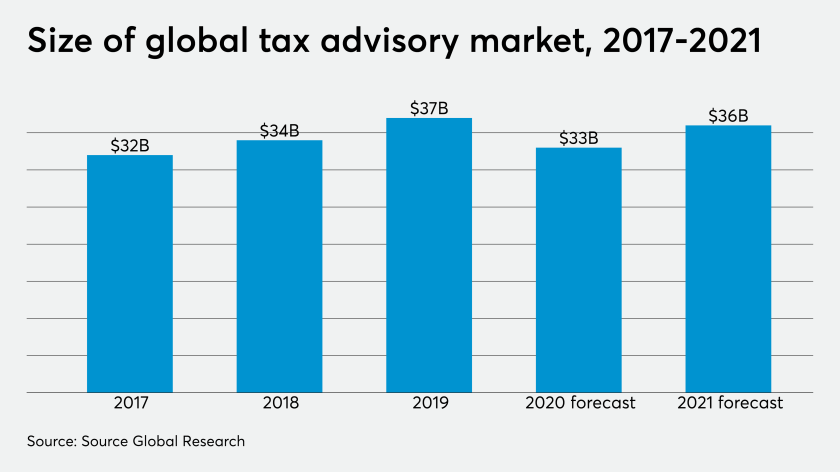President-elect Joe Biden will seek a deal with Republicans on another round of COVID-19 relief, rather than attempting to ram a package through without their support, according to two people familiar with the matter.
The approach could mean a smaller initial package that features some priorities favored by Senate Republican leader Mitch McConnell. The idea is to forgo using a special budget process that would remove the need to get the support of at least 10 Republicans in the Senate, which will be split 50-50 and under Democratic control only thanks to the vice president’s vote.
The changes of the past year around how and where staff can work are irreversible, and accounting firms need to adjust and find ways to make the most of the tremendous opportunities afforded by "boundaryless" work, say Jennifer Wilson and Renee Moelders of ConvergenceCoaching.
Tax advisory firms took a projected $3 billion hit on their revenues around the world last year because of the coronavirus pandemic, according to a new report.
The Virginia Society of CPAs is offering local professionals a series of programs to counter mental stress and hardships from the ongoing pandemic and social climate.
Biden transition staff briefed aides to congressional Democrats on Tuesday about the plans to work with the GOP and not use so-called budget reconciliation in an initial stimulus package.

The briefing came a day after former Senate Democratic leader Tom Daschle urged his party to give McConnell “reasons to be cooperative,” which would unlock greater legislative achievements.
Biden last week talked of a multitrillion-dollar economic package, but this could now come in stages.
House Ways and Means Committee Chairman Richard Neal, who’s been speaking with the Biden transition team, said in an interview Tuesday that he would like to see infrastructure spending included in the stimulus package, and that he would be on board with a $2 trillion package.
“It strikes me as it won’t be that difficult to get there,” Neal said.
Neal also said he wants to explore ways to fix state unemployment-insurance distribution systems and to funnel more money to workers in states with low state-level benefits.
Earlier Tuesday, incoming Senate Majority Leader Chuck Schumer told his Democratic colleagues that his top priority after his caucus takes control will be COVID-19 emergency-relief legislation. He highlighted boosting direct payments to most Americans to $2,000 from the $600 enacted in December, additional support for vaccine distribution, and help for small businesses, families, schools and state and local governments.
Democratic Senator Kirsten Gillibrand of New York said she thinks the House-passed Heroes Act, a $2.2 trillion measure from October — some of which became part of the $900 billion bipartisan compromise enacted in December — would be the framework for an “updated” bill that could pass in a few weeks. She added that paid leave could be part of the bill.
Also on the table: expanded unemployment aid, which runs out in mid-March under the December relief bill, a date that serves as an effective deadline for Congress for the next round.
The money for testing, vaccines, childcare, schools and state and local governments sought by Democrats is generally thought by aides to be excluded from being allowed under the special budget reconciliation process under Senate rules.
The budget tool can be used for fiscal provisions such as raising or cutting taxes, extending unemployment aid, changing Medicare or Medicaid or stimulus payments. It would require Congress to adopt a concurrent budget resolution with specific instructions and then later pass a reconciliation bill with just a simple majority in the Senate.
— With assistance from Jennifer Epstein






